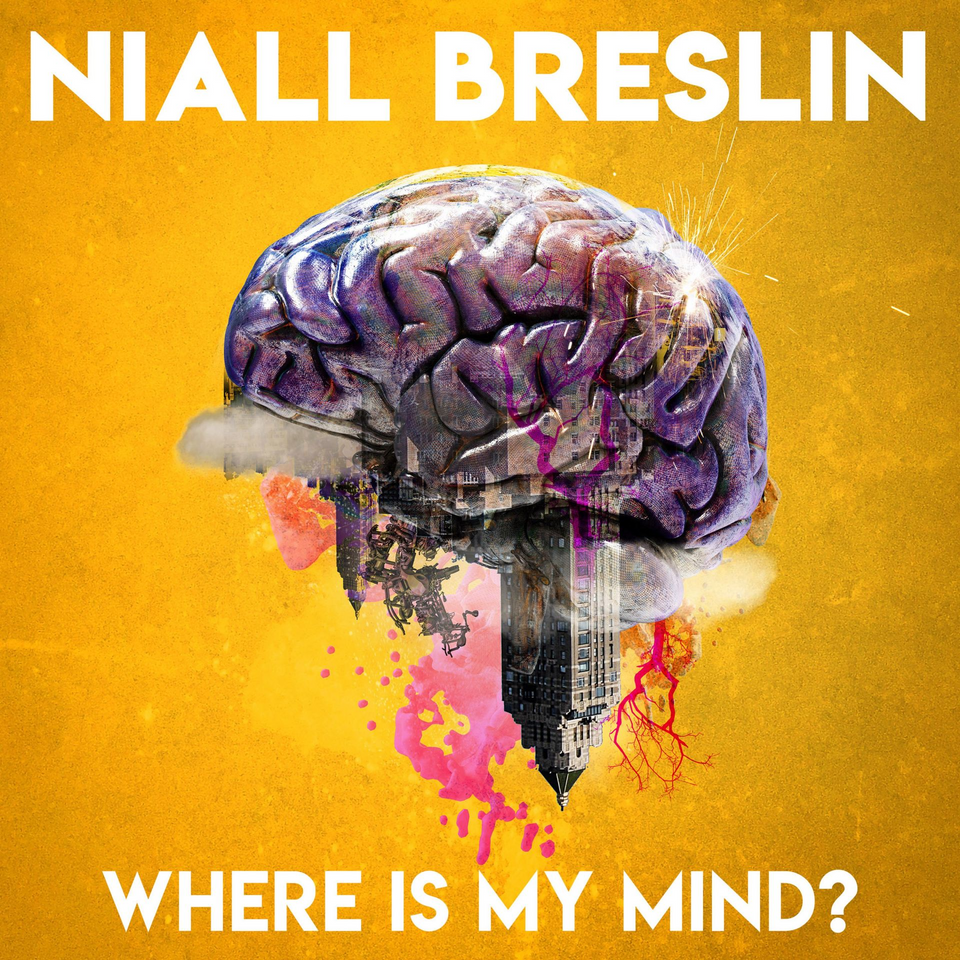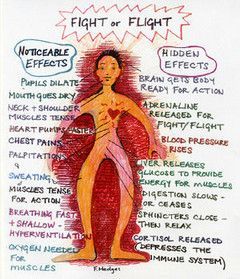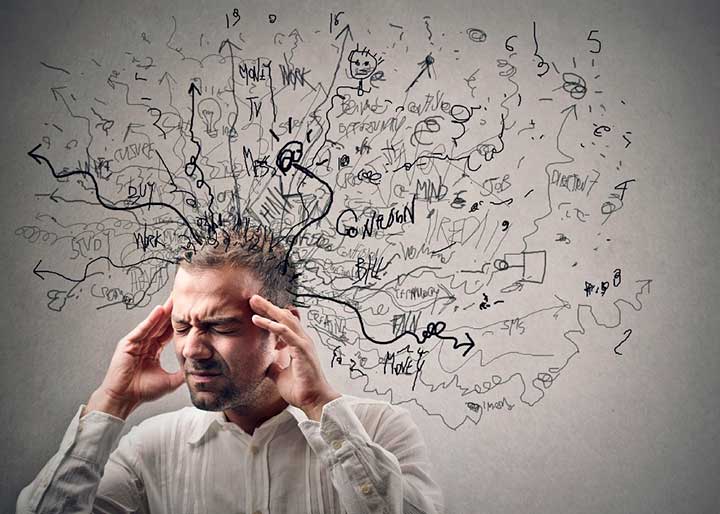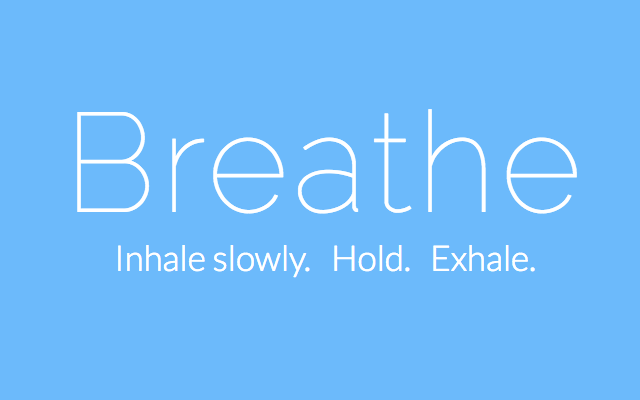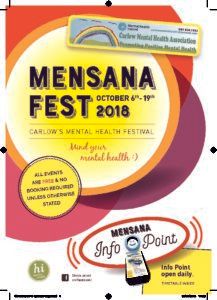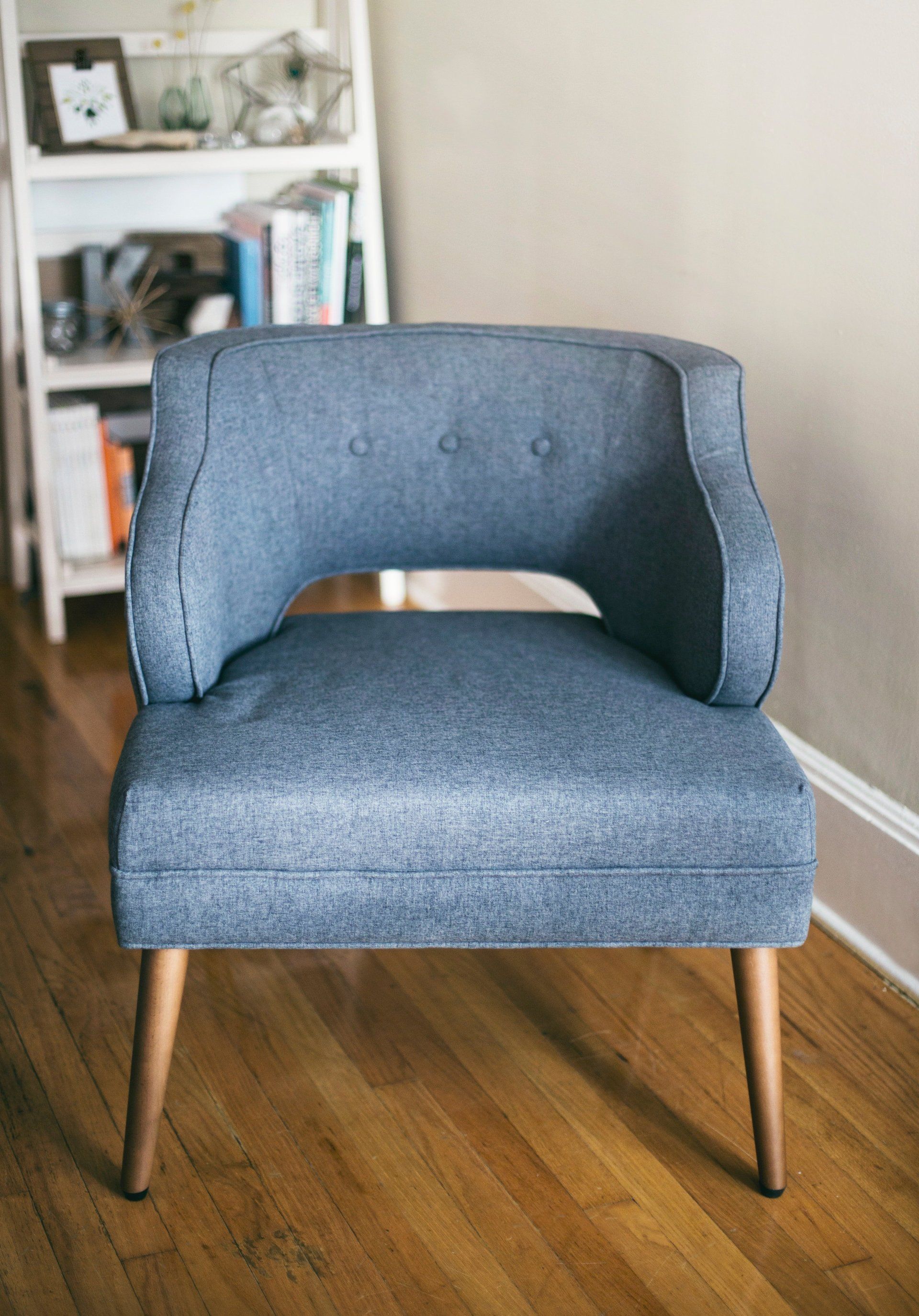Podcasts worth a listen...
Marie Cumiskey • 4 August 2019
Podcasts are one of my guilty pleasures. Perhaps it's the fact there's a podcast on everything and anything available at the touch of a finger, we can listen to them online or offline, they're free, it can make a commute/tidying the house/running on a treadmill a little or a lot more interesting, they can inspire, educate and inform us. My two most recent listens are outlined here; Niall 'Bressie' Breslin's 'Where is My Mind' and Caroline Foran's 'Owning It: The Anxiety Podcast'. Both use personal experience, reflection, interviews and resources to support us.
For those new to podcasts I've included some tips on how to get started and an extract from Caroline Foran's book 'Owning It'.
Where is my Mind? is a podcast about how we can navigate the manic, always-on, and head-melting world we live in. Our lives are changing so quickly, its hard to keep up. Although a lot of this change is for the better, our culture is more fast paced, more polarised, more narcissistic, and more disconnected than ever, and that’s having a massive effect on our stress levels. We’re overwhelmed, we’re too busy, we’re out of balance.
In this podcast, Niall ‘Bressie’ Breslin talks about what impact this society has on us, and how we can deal with it by introducing the basics of mindfulness practice and meditation... and you’ll learn how to get off autopilot, how to navigate constant distraction, how to be a more skilful stress-head, how to focus on the parts of our world that are truly wonderful…. and even how to be deadly at Jenga.
Produced by Niall Breslin and Ciara O'Connor Walsh.
Owning It:
The Anxiety Podcast
- is a practical and relaxed series exploring everything from what anxiety is and why it happens to us, how our brains work and why it's actually very normal, to the various tools and techniques necessary for owning it. Author Caroline Foran shares her story, along with some expert input, in an attempt to help you show your anxiety who's boss. This is a series that tackles the reality of anxiety from a refreshing and relatable perspective.
Caroline describes her journey from childhood tummy pains to not being able to leave the house as an adult and how she finally came around to accepting herself and how to deal with stress and anxiety in her life.
Knowing your body and mind, being comfortable in your skin and educating yourself with information and knowledge can help you, Caroline explains, “once you understand it you are far better equipped to deal with it”. Caroline has written some bestsellers including Owning It and The Confidence Kit. I've included an extract from the 'Owning It' at the end to give you a flavour of it.
If you are new to podcasts...first, you’ll need a podcast app. If you have an iPhone, you should already have the Podcasts app installed. Android users can use Google Play Music, though there’s also a dedicated Google Podcasts app that has extra features.
You can also find most podcasts on Spotify. Other dedicated podcast apps include Pocket Casts, Overcast, Stitcher, and Podcast Addict.
Within your chosen podcast app, simply search for a podcast and hit Subscribe or Follow. Note that your app’s settings will determine whether or not episodes are automatically downloaded, whether downloads will require wi-fi, etc.
Extract from Caroline Foran's 'Owning It'
What is Anxiety?
Understanding what anxiety is, why we have it and how it affects us is the first port of call on your journey towards wellness and, trust me, just having this knowledge alone can alleviate some of what you’re feeling.
‘Anxiety’ is a word you’re well familiar with.
It’s a concept that’s thrown about on a daily basis, especially in today’s exaggerated world of social media, where Harry Styles might fancy himself a haircut, leaving the rest of us unable to ‘cope’ with the transformation. But few of us are versed in the specific brain chemistry that gives rise to feelings of anxiety. What’s more, few of us succeed in identifying its presence within ourselves – I certainly did not.
I understood this basic bodily function in the sense that you might pace the floor ‘anxiously’ awaiting the arrival of your exam results. I also had a vague understanding of the ‘fight or flight’ response and how, at least from an evolutionary perspective, it was essential for our survival.
It is our body’s innate way of protecting itself and when you take a moment to think about it, it’s actually kind of impressive. Obviously, it isn’t a feeling you’d relish, but that kind of anxiety made sense. It spurred you on. It showed that you cared. There was always an easily isolated reason that triggered it and, like clockwork, it passed with the event.
Until, one day, with no big anxiety-inducing event around the corner and no grizzly bears in my immediate vicinity, the very unsettling feeling of anxiety was just there. Always. What I had absolutely no clue about was how stress and anxiety can manifest themselves in different ways. That near-constant ache in my stomach wasn’t just because I had a dodgy tummy, it was because I was anxious, and that’s how my body tried to communicate this information to me.
This kind of anxiety is more of a slow burner, and it can be really hard to identify. I drove myself insane trying to figure out why my stomach was so reactive. One minute, I’d convinced myself I was allergic to tap water; the next, I had every kind of cancer imaginable. I wasn’t thinking clearly, and was therefore incapable of rationally connecting the dots.
I wasn’t listening to my body and while my stomach certainly had my attention, I wasn’t looking at the full picture of my lifestyle, past and present. So what started as subtle symptoms of stress eventually graduated to full-blown I-can’t-cope anxiety, otherwise defined as an intense negative emotion dominated by fear.
The prolonged stress resulted in me developing an oversensitive nervous system, which made me more susceptible to external and internal stressors, irrational thoughts, worries and fear (all of which are defining characteristics of anxiety), and, in turn, this made me fearful of the fear itself. I was no longer thriving. I was struggling to cope – literally – with the most basic aspects of living.
What was almost worse – and I appreciate how stupid this must sound, but bear with me – was the lack of dreadful things on which to pin the blame. There was no trauma, nobody had died, I had no near-death experience that left me reeling and there was nothing remotely sinister in my midst.
On paper, my life seemed to be firing on all cylinders. So what right had I to fall apart? And my inner turmoil only got worse when people said things like: ‘What have you got to feel down about?’ or ‘But you look fine.’
And that’s precisely where we need to cut the crap: our contemporary experience of anxiety is not dependent on something terrible that threatens our survival, nor is it a members-only club for people who’ve been dragged through the emotional trenches. Yes, there will always be someone worse off and if that kind of perspective improves your feelings of anxiety then great, but remember this: it’s all relative. You feel like crap. What you certainly don’t need is the added feeling that you have no right to feel crap.
The thing is, however, that even though we’ve evolved significantly in certain ways, our brains – and our bodies – react to stress in the same way they did when we were chasing down hyenas in the wild, and that’s arguably where evolution needs to hurry the f*ck up. Your brain just can’t tell the difference between running away from Freddy Krueger and a boss whose footsteps make you shudder in fear. It doesn’t need specifics about what the threat is, it just produces the necessary hormones for your survival, regardless of what’s going on.
Problems arise because the amygdala (the part of the brain that governs emotions and triggers alarm signals of fear in the brain) performs a bit like an ill-fitted burglar alarm; it can get a little overactive and think you’re in danger when you’re really just fine. It can also trigger long after you’ve endured something stressful. And the stress signals can become so strong that, over time, all thoughts become tinged with fear and alarm.
This is where things went wrong for me.
What starts as a little nudge from your body to say, ‘Hey, I don’t like this’ eventually becomes an avalanche of your overactive amygdala. If you’ve been worrying a lot over a long period of time and dealing with significant feelings of stress (significant to YOU), your prefrontal cortex – the part of the brain that thinks, reasons and calms our fears – is essentially exhausted (hence my inability to reassure myself that I wasn’t allergic to water), while your amygdala is trigger-happy, firing off warnings left, right and centre. Under normal circumstances, the production of cortisol (sometimes labelled ‘the stress hormone’) is regulated, but when it’s over-produced, it makes it hard for our brains to encode and recall memories accurately. Not ideal.
On the other hand, the good news is that if this higher part of your brain is functioning well – and that’s our task here – it can moderate strong fear. What’s more, you can train your higher brain to recognise the warning signs well before any strong feelings of fear or panic arise, which will calm the amygdala. This is a concrete and crucial step in tilting the balance towards the reasoning part of your brain.
In my own experience, this information alone was a huge relief: it wasn’t my fault that I felt this way, or that I couldn’t snap out of it at the click of my fingers. I couldn’t help the fact that all of my thoughts were tinged with fear; it was simply a result of my worn-out prefrontal cortex that simply needed a little patience from me and some TLC. It’s the same for you.
With this understanding of the brain, I was able to then step back and say, ‘Okay, you’re feeling quite anxious for no apparent reason, and things that wouldn’t normally make you fearful suddenly seem overwhelming, but this is why. Give yourself some time, accept that this is how your body functions and know that all will be well.’
This acceptance was an important part in assessing my anxiety, and helped me to move on to the next step – addressing it.
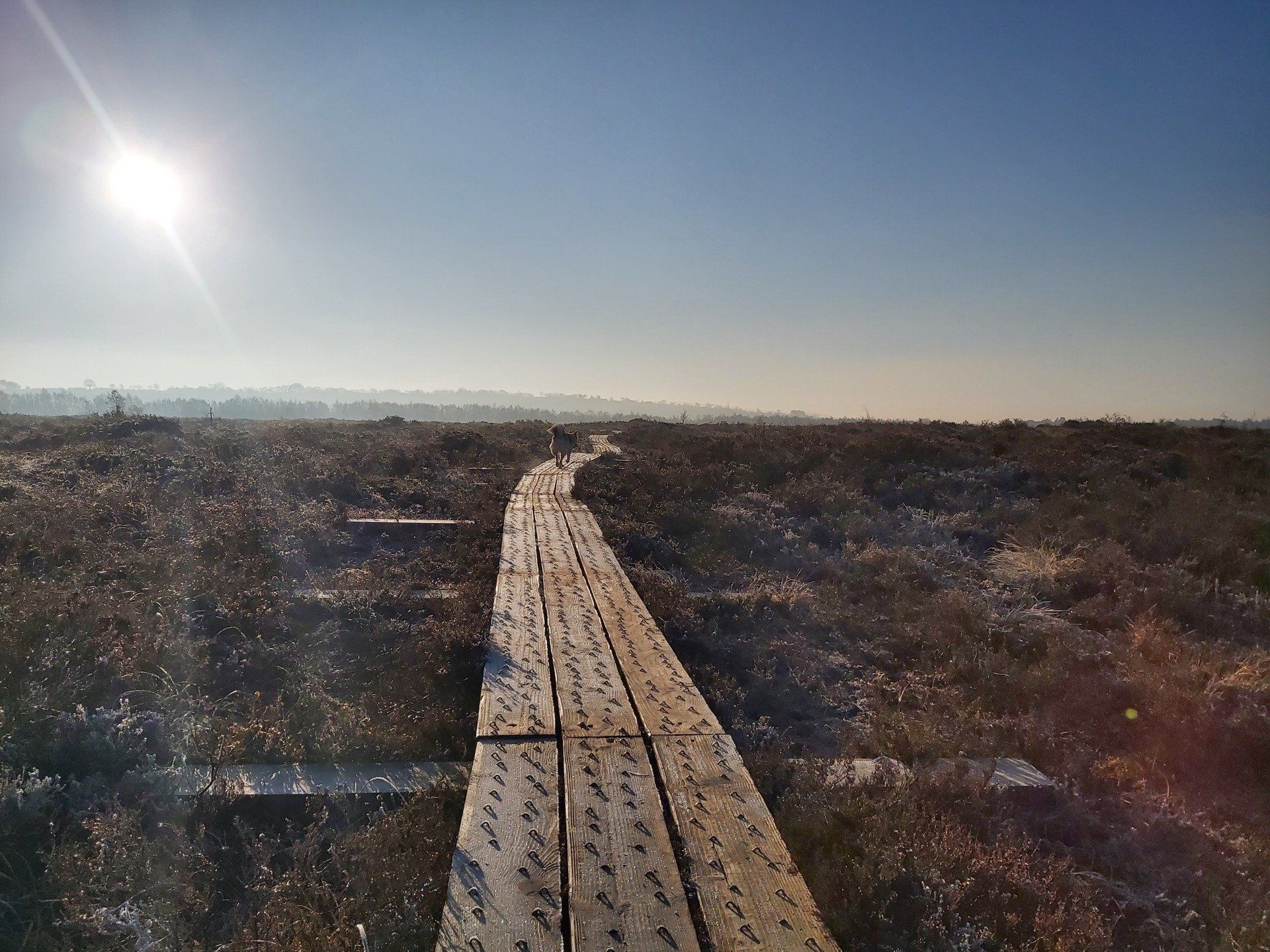
How do you reflect on a year that has been like no other? A time when we were told to ‘work together by staying apart’, when lives have been turned upside down and what was not possible for many (work from home), is now the rule. Where technology has permitted us to grow new skills of digital connection in a world alien to the multitude twelve months prior. Teachers, Parents, Students, Grandparents, Friends, even my fellow Counsellors and Clients have adapted, to varying degrees, to a life explored in various capacities through now familiar Zoom links, Google meets and Teams groups. How our language has adapted, our behaviours, our daily routines… When I reflect on my own experience of this past year and a little more, I am incredibly thankful for so much. Living in the countryside on my family farm has afforded me space and time…including a list of jobs that needed doing the chance to get done! Though, as with most farms, many more added to an ever growing and evolving list. The humourous memes of dogs hiding on their owners to escape another walk abound…though ours would never miss the opportunity! Baking banana bread and raspberry and white chocolate muffins, signing up to online fitness classes and exploring the limits of my 5km. I zoomed with friends…and got exhausted by it…and came back to them again in different ways. This time has brought on a type of tiredness at times. The hope of 2021 in the final weeks of 2020, then the flatness felt collectively as figures rose and restrictions tightened in the time of shorter days. These past fourteen months have not been without losses. My grandparents, on my mum’s side, both have passed away, a year and ten minutes to the day of each other. Watching their funerals on screens from across the Irish Sea will never replace the tangibility of presence. We also lost a family friend, who was in every way our Grandad, a larger than life personality. The impression left behind is one I would never want to forget and one that will never be filled in the same way. Restrictions limited our ability to celebrate their lives in the special way we come together, as neighbour, friend and family. Loss has been a major theme of these times. Highlighted each day in the covid figures. In the beginning, I was like the majority, watching and waiting to hear what our stats were. Although self-preservation kicked in and I began to limit my exposure, my mind needed the space away from the constant news reel. I still check in, but not daily. In our every day we have choices. Viktor Frankl, Holocaust survivor who became an eminent US social psychologist, shared many significant social psychology concepts, one of which is the space between stimulus and response. In Frankl’s words, “Between the stimulus and response, there is a space. And in that space lies our freedom and power to choose our responses. In our response lies our growth and our freedom.” Every minute of every day, we are faced with choices of how to respond to the stimuli around us. Some of these choices are big, some of them are small. “Do I go to for a run this morning or this afternoon, or skip it all together? Do I respond to this “annoying” email now, later or never?”. At times, we don’t even get to the point of framing the question and the associated options; we just act. We respond by habit. Some of these habits serve us well, others perhaps, are a bit of a liability. While the context of Frankl’s writing is about big choices of morality, his ideas have application for the mundane and everything in between. The underlining frame is that we have choice once we give ourselves a breath and the space to respond. Photo taken early morning on the Abbeyleix Bog Walk.
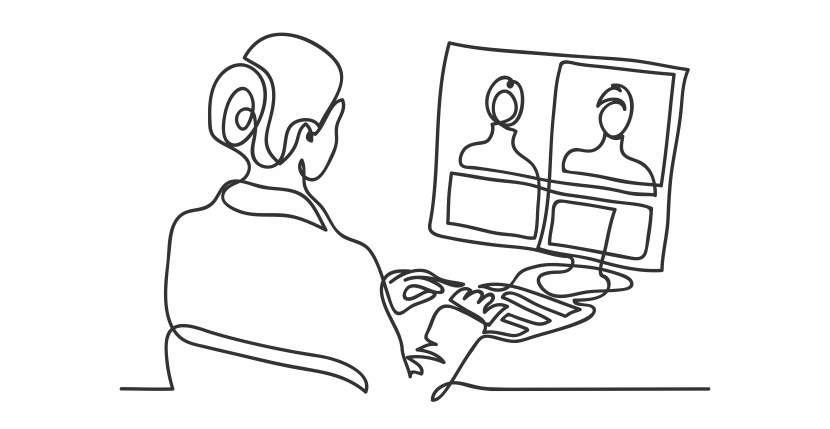
Accessibility Online counselling is easily accessible to anyone who wishes to use it. For example, individuals living in rural or remote areas where there is no counselling services can benefit from the accessibility of telephone or online counselling. It removes the geographical barrier which may exist or save a long drive to the nearest town. Therefore available to everyone in all areas of Ireland. Those that have a mobility issue or unable to leave their home (caring for small children/elderly parents or have no support system to allow you spend time away from home) can also easily access these services with little inconvenience. Convenience For some who may feel initially uncomfortable with traditional modes of face to face therapy, may find online or telephone counselling more suitable. It’s highly flexible and can be accessed from your home, office or car, therefore maximising your privacy. Ability to facilitate couples/family counselling across distances – trying to schedule couples or family counselling can be challenging, especially if one or more people in the group travel. Online counselling is a great option to bridge distances and help maintain regular therapeutic sessions. I continue to follow the IACP Code of Ethics for telephone and online counselling and psychotherapy as is the case for traditional counselling. The same levels of confidentiality occur with both traditional and online counselling. The current situation for many has given space and time to reflect on challenges they have been facing and be ready to seek additional support. Counselling can help to reconnect with resources and strengths, as well as develop new ones, to make life feel more manageable. Counselling isn’t a magic wand used to make problems disappear, the therapeutic process reduces the negative impact of challenges and contributes to a sense of hope and possibility. Telephone and Online Counselling will continue throughout this time.
